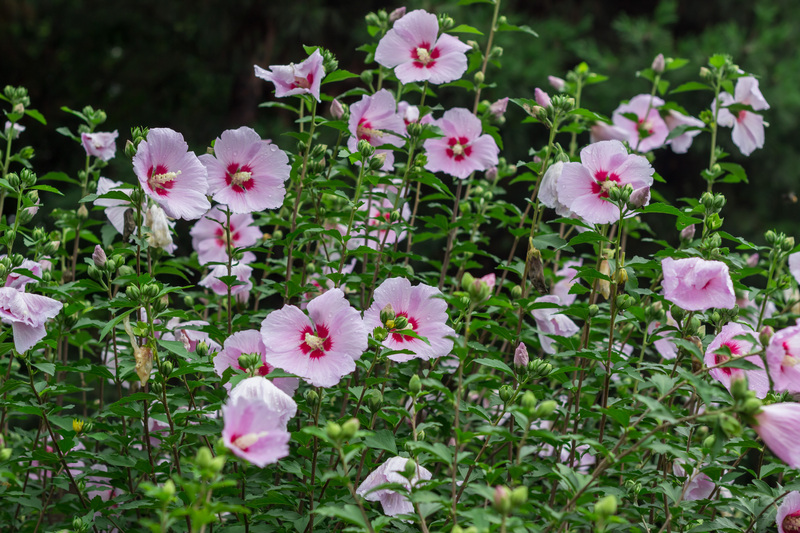Turning Kitchen Scraps into Garden Gold
Posted on 20/09/2025
Turning Kitchen Scraps into Garden Gold: A Complete Guide
Are you passionate about gardening and looking for ways to enrich your soil without breaking the bank or harming the planet? Turning kitchen scraps into garden gold is a sustainable, budget-friendly practice that transforms everyday waste into a powerful resource. In this comprehensive article, you'll discover how to recycle leftovers, reduce household waste, and supercharge your plants--all in one eco-friendly cycle. Keep reading for expert tips on composting, smart ways to use food waste, and answers to common questions about converting scraps into fertilizer!
Why Reuse Kitchen Scraps in the Garden?
Every year, tons of food waste end up in landfills, generating methane gas and contributing to environmental damage. Instead of tossing those potato peels, coffee grounds, and eggshells, you can:
- Reduce your carbon footprint by recycling organic matter.
- Improve soil structure and fertility for healthier plants.
- Save money on commercial fertilizers and soil amendments.
Turning kitchen scraps into plant boosters is both gratifying and easy to implement, regardless of your garden size or skill level.

Understanding the Science: How Kitchen Waste Becomes Soil Gold
Composting is the process of breaking down organic material--like fruit peels and coffee grounds--into nutrient-rich humus, often called "garden gold." Microbes, fungi, worms, and insects all work together to decompose scraps. The result is a dark, crumbly, earthy-smelling material that's packed with plant nutrients and beneficial microbes.
Main Benefits of Composting Kitchen Scraps
- Enriches soil--adds vital nutrients and supports soil microbes.
- Helps retain moisture in garden beds and planters.
- Encourages beneficial organisms, including earthworms.
- Suppresses plant diseases and pests naturally.
- Reduces the need for chemical fertilizers and pesticides.
By starting the journey of transforming kitchen waste into garden gold, you join millions of gardeners making a positive difference for the environment and their own backyard ecosystems.
What Kitchen Scraps Are Garden-Friendly?
Not all scraps are suitable for composting or direct garden application. Understanding which waste is safe (and beneficial) will set your garden up for lush success!
Best Kitchen Scraps for Compost and Garden Beds
- Fruit and vegetable peels (carrot tops, banana skins, apple cores, etc.)
- Coffee grounds and unbleached filters--adds nitrogen and attracts worms.
- Tea bags (confirm they contain no synthetic fibers).
- Eggshells (crushed)--a great source of calcium for strong plant cell walls.
- Leafy greens and salad scraps
- Bread (in small amounts)
- Nutshells (except walnuts, which can be toxic to plants)
- Old herbs and spices
Avoid These Items in Your Kitchen Compost!
- Meat, bones, and dairy--attract pests and decompose poorly.
- Greasy/oily foods
- Pet waste--can contain harmful pathogens.
- Synthetic materials (like plastic tea bags)
- Large quantities of citrus peels and onions--may inhibit beneficial microbes.
For the best results, stick to plant-based, non-oily kitchen scraps, and always chop or break them into smaller pieces for faster decomposition.
Starting Your Compost: Methods for Any Gardener
You don't need a sprawling backyard to start turning food scraps into fertilizer. Choose a method that fits your space and lifestyle:
Traditional Outdoor Compost Pile or Bin
- Best for: Yard owners with extra space.
- Layer kitchen scraps ("greens") with yard waste like dry leaves and cardboard ("browns").
- Keep the pile moist, but not soggy.
- Turn with a pitchfork every 1-2 weeks to aerate and speed up decomposition.
Tumbler Composter
- Best for: Urban and suburban gardeners wanting a tidy, pest-resistant system.
- Enclosed drum design keeps critters out and lets you turn compost easily.
Vermicomposting (Worm Bin)
- Best for: Apartment-dwellers or those without outdoor space.
- Uses red wiggler worms to rapidly digest kitchen scraps.
- Produces "worm castings"--one of the finest organic fertilizers.
Bokashi Composting
- Best for: Small spaces and people who want to compost meat, dairy, and cooked food.
- Anaerobic process using a special microbe inoculant. Scraps ferment for up to two weeks and are then buried in the soil.
Step-by-Step: How to Turn Kitchen Scraps into Garden Gold
1. Collect and Store Your Scraps
- Designate a small compost bucket or bin in your kitchen. Use a lid to prevent odors.
- Chop large items for faster decomposition.
- Empty the container into your outdoor compost, worm bin, or bokashi setup frequently.
2. Layer and Balance
- Aim for a balance of "greens" (nitrogen-rich food scraps) and "browns" (carbon-rich materials like dried leaves and cardboard).
- Too many greens can make compost smelly; too many browns slow decomposition.
3. Care and Maintain
- Turn outdoor piles routinely to add oxygen and mix materials.
- Keep compost moist, not soggy--like a wrung-out sponge.
- Worm bins need bedding (shredded newspaper, coconut coir) and darkness.
- Bokashi should be kept closed and undisturbed during fermentation.
4. Harvest Your Finished Compost
- Finished compost is dark, crumbly, and smells earthy--no longer like food scraps.
- Worm bins will provide castings in 2-3 months; traditional piles may take 6-12 months.
- Sift out large pieces, which can go back into the next compost batch.
Direct Uses of Kitchen Scraps Without Composting
Not all food waste must be composted to benefit your garden. Here are creative ways to turn kitchen scraps into natural fertilizers right away:
Eggshells as Calcium Boosters
- Rinse and dry eggshells, crush finely, and sprinkle around tomatoes, peppers, and squash to prevent blossom end rot.
Coffee Grounds for Acid-Loving Plants
- Add used grounds directly around azaleas, blueberries, and roses, or mix into the soil to improve structure and nitrogen content.
Banana Peels for Potassium
- Bury chopped peels at the base of rose bushes for strong blooms and root growth.
Vegetable Cooking Water
- Cool and use unsalted water from boiled veggies to water potted plants--supplies trace minerals.
Regrow Vegetables from Scraps
- Place root ends of green onions, celery, and lettuce in water, and watch them resprout. Once roots grow, transplant to soil!
Top Tips for Successful Kitchen Scrap Composting
- Chop scraps small: Increases decomposition speed.
- Cover food waste: Always bury fresh scraps with "browns" to prevent pests and odors.
- Aerate regularly: Turning compost keeps it decomposing efficiently.
- Keep compost moist but not wet: Too much water causes bad smells and slows the process.
- Check local compost rules: Some communities restrict what can be composted at home.
Frequently Asked Questions About Kitchen Scrap Composting
How long does it take kitchen scraps to turn into compost?
It depends on your method--outdoor piles average 6-12 months, while worm bins and bokashi can finish in 2-3 months under ideal conditions.
Can you compost cooked food scraps?
Most traditional composts avoid cooked food due to odors and pests, but the bokashi system can accept many cooked foods safely.
Will composting attract animals and bugs?
If you cover fresh scraps with "browns" and choose enclosed bins or tumblers, nuisance pests are minimized. Avoid meat, dairy, and oils for best results.
Can you put compost directly onto plants?
Mature, finished compost is safe and beneficial to mix with potting soil or apply as mulch; unfinished compost may rob plants of nitrogen as it continues to decompose.

Eco-Friendly, Rewarding, & Easy: Start Today!
Whether you want to transform kitchen scraps into garden fertilizer or cut down family food waste, starting a home compost system is a simple and deeply rewarding eco step. Here's a quick summary to get you going:
- Collect: Keep a scrap pail in your kitchen.
- Compost: Choose a system--outdoor pile, bin, tumbler, worm bin, or bokashi.
- Care: Balance greens/browns, turn or aerate, and keep moist.
- Use: Spread finished compost or direct-use kitchen scraps to enrich your garden beds and potted plants.
Gardening with food waste closes the waste loop, saves money, and builds healthier, more resilient plants. No matter your space, you have the power to turn kitchen scraps into organic garden gold--making your soil richer and our planet a little bit greener.
Ready to Grow Greener?
By adopting the habit of turning kitchen scraps into garden gold, you'll join a movement of eco-conscious gardeners producing less waste and more abundance. Share your composting journey with friends, neighbors, or community gardens, and watch your landscape (and your pride) bloom.
Happy composting--and may your soil be forever rich!
Latest Posts
Turning Kitchen Scraps into Garden Gold
Embarking on a Garden Makeover: The First Move
Create a Garden Sanctuary for Your Little Ones



